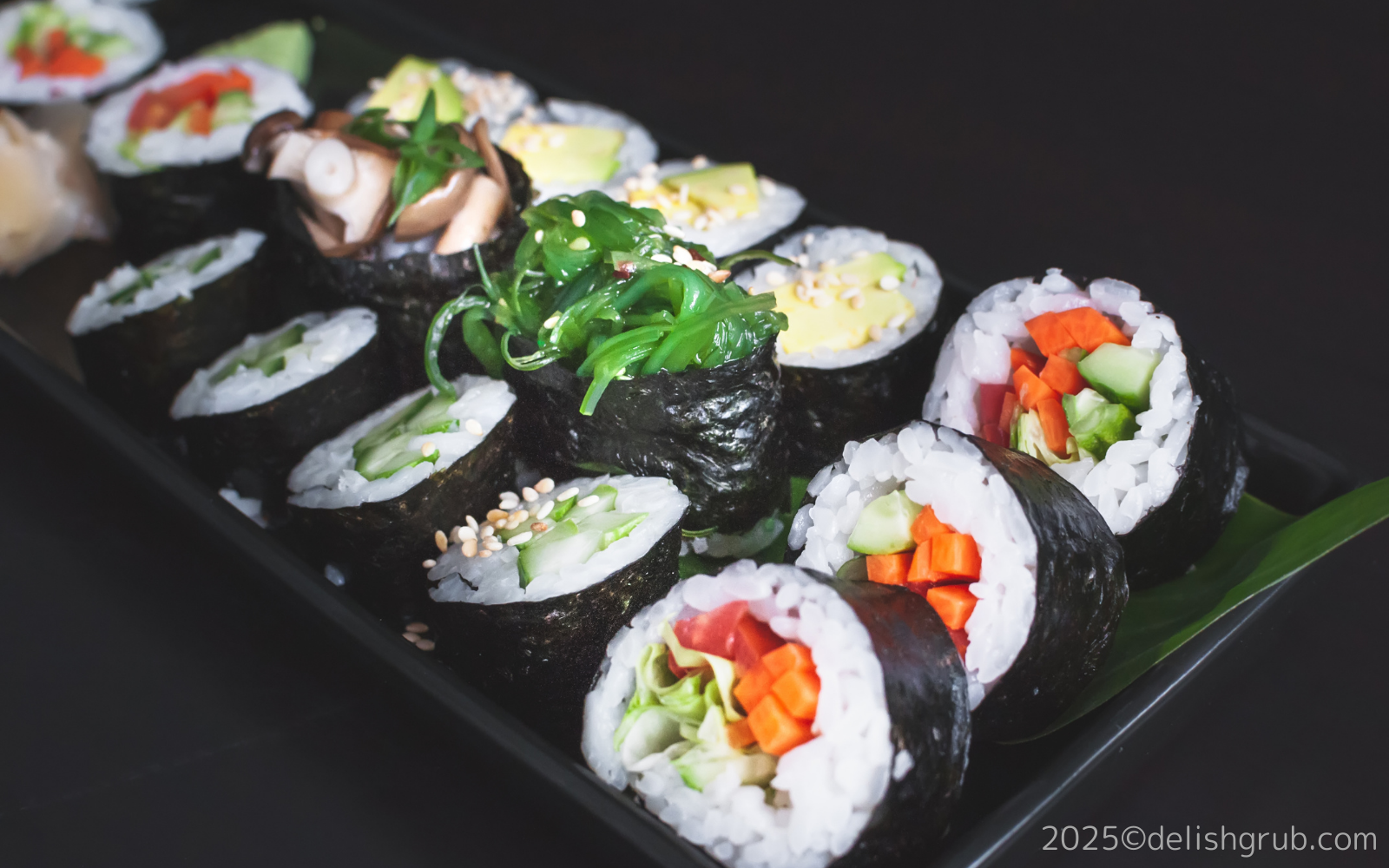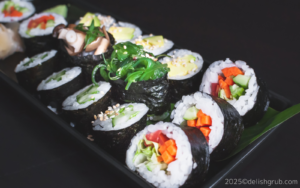“I want to visit Japan, but I’m a vegan and worried about the food…”
Put those worries aside! Japan’s vegan scene is flourishing, with a growing number of vegan-friendly restaurants and cafes. This article dives deep into the latest vegan trends in Japan, offering recommendations for must-visit spots in major cities and rural areas, along with helpful tips for a seamless experience.
By the end of this article, you’ll:
- Gain a clear understanding of the current vegan landscape in Japan.
- Discover fantastic vegan restaurants in both urban and rural areas.
- Learn about the recent changes and factors contributing to the rise of veganism in Japan.
- Understand the unique aspects of Japan’s vegan scene compared to other countries.
- Be equipped with useful information and tips for your trip.
No more food worries! With this guide, you’ll find delicious vegan food in Japan and create wonderful memories during your travels.
1. Vegan Travelers Rejoice! Japan’s Vegan Scene is Thriving
Driven by the increase in inbound tourism, health consciousness, and environmental awareness, Japanese restaurants are evolving to cater to diverse needs. The availability of vegan options, in particular, has seen remarkable growth in recent years.
As of 2023, there are reportedly around 4,000 vegetarian and vegan restaurants in Japan (according to HappyCow), and this number is steadily increasing.
The Key to a Worry-Free Trip: Research and Preparation
While the vegan scene is expanding, not every restaurant in Japan offers vegan options. To ensure a comfortable and enjoyable trip, thorough research and preparation are essential.
- Research vegan restaurants in your desired areas: Before your trip, make a list of vegan-friendly restaurants in the areas you plan to visit. Utilize online resources like HappyCow and Vegewel to aid your search.
- Make reservations: For popular restaurants or those requiring special arrangements, it’s advisable to book in advance.
- Prepare essential Japanese phrases: In case English menus are not available, memorize basic Japanese phrases related to being vegan and any specific allergens you may have.
2. Major Cities: A Growing Haven for Vegans
Major cities like Tokyo, Osaka, and Kyoto offer a wide array of vegan-friendly options, from specialty restaurants to cafes and even ramen shops.
Tokyo: Diverse Choices, from Specialty Restaurants to Cafes and Ramen
Tokyo boasts a diverse and vibrant vegan scene, with options ranging from dedicated vegan restaurants to charming cafes and even ramen shops serving plant-based broths.
- T’s Tantan: Located within Tokyo Station, this restaurant specializes in vegan ramen. Their ramen, crafted without any animal products and using vegetables and soy milk, is both healthy and deeply satisfying.
- AIN SOPH.: A beloved vegan restaurant with multiple locations across Tokyo. They offer beautifully presented and innovative dishes, with a wide selection of gluten-free options as well.
- Brown Rice: This vegan cafe in Omotesando focuses on wholesome dishes made with organic ingredients. Their smoothies and desserts are also popular choices.
Osaka & Kyoto: From Traditional Shojin Ryori to Modern Vegan Cafes
Osaka and Kyoto present a diverse range of vegan options, from long-established restaurants serving traditional Shojin Ryori (Buddhist cuisine) to stylish and modern vegan cafes.
- Izusen: A venerable Kyoto restaurant renowned for its Yudofu (boiled tofu). They also offer Shojin Ryori courses, allowing you to savor beautifully presented dishes made with seasonal ingredients.
- Choice: This vegan cafe in Osaka offers a wide array of casual dishes like hamburgers and curry.
- Vegans Cafe and Restaurant: Located in Kyoto, this vegan restaurant is popular for its healthy and fulfilling lunch plates packed with vegetables.
Other Major Cities: Expanding Vegan Options
Vegan-friendly restaurants are also on the rise in other major cities like Nagoya, Fukuoka, and Sapporo.
- Nagoya: Falafel Brothers (Middle Eastern cuisine), Saishoku Kenbi Choumeian (natural food restaurant)
- Fukuoka: PLANT-BASED CAFE PEACH (vegan cafe), Vegan Burger IroIro (vegan burger specialty shop)
- Sapporo: AIN SOPH. Journey (vegan restaurant), cafe et craft yue. (vegan cafe)
Research beforehand to discover hidden gems and favorites that suit your taste.
3. Regional Cities: Enjoy with a Bit of Planning and Resourcefulness!
While vegan options might be less prevalent in regional cities compared to major ones, with a bit of planning and research, you can still find satisfying meals.
Vegan-Friendly Restaurants
Even in regional cities, you can find restaurants and cafes that cater to vegans. Utilize online resources and review sites to gather information beforehand and consider making reservations.
Local Cuisine with a Focus on Vegetables
Regional cities offer unique local dishes made with local ingredients. Look for restaurants that specialize in vegetable-centric dishes or Shojin Ryori.
Supermarkets and Convenience Stores
Japanese supermarkets and convenience stores offer a growing selection of readily available vegan products. You can find salads, onigiri (rice balls – be mindful of fillings), tofu, fruits, and more.
4. A Remarkable Transformation: The Rise of Veganism in Japan
Changes Reflected in Statistics
- Increasing Vegan Population: The number of vegans in Japan is steadily rising. A 2021 survey revealed that approximately 2.7% of the population identifies as vegetarian or vegan. (Source: Nielsen)
- Growing Number of Vegan-Friendly Restaurants: The number of restaurants catering to vegans is also increasing. As of September 2023, HappyCow lists around 4,000 vegetarian and vegan restaurants in Japan.
Factors Driving the Change
- Growing Health Consciousness: Increased awareness of health and well-being is leading more people to adopt plant-based diets.
- Environmental Concerns: Concerns about the environmental impact of animal agriculture are prompting more people to reduce or eliminate animal products from their diets.
- Increase in Inbound Tourism: The rise in foreign tourists, including those following vegan lifestyles, is encouraging restaurants to adapt and offer more inclusive menus.
- Growing Awareness of Animal Welfare: Increased concern for animal rights and welfare is contributing to the rise in veganism.
Future Outlook
The future looks promising for veganism in Japan. We can anticipate even more restaurants embracing diverse dietary needs, creating an inclusive dining environment for everyone.
5. How Does Japan’s Vegan Scene Compare Globally?
Comparison with Western Countries
Compared to Western countries, Japan’s vegan scene is still evolving. However, there’s a noticeable increase in not only vegan specialty shops but also mainstream restaurants offering vegan options.
Comparison with Other Asian Countries
Vegetarianism is deeply ingrained in the cultures of many Asian countries due to religious reasons, resulting in a wide variety of options. Japan’s Shojin Ryori is a testament to this tradition. Additionally, modern vegan cuisine is gaining popularity, further expanding the choices available.
Japan’s Unique Strengths
- Omotenashi (Hospitality): Japan’s culture of hospitality extends to dining experiences. Even if a restaurant doesn’t have a dedicated vegan menu, many will do their best to accommodate your needs.
- Attentive Service: Many restaurants are mindful of dietary restrictions and allergies, providing detailed explanations and ensuring a safe and enjoyable experience.
- High-Quality Ingredients: Japan boasts an abundance of fresh, high-quality vegetables and tofu, allowing for delicious and flavorful vegan dishes that highlight the natural essence of the ingredients.
6. Helpful Information and Tips
Restaurant Search Websites
- HappyCow: A global directory of vegetarian and vegan restaurants.
- Vegewel: A website specializing in vegetarian and vegan restaurants in Japan.
Reservations
For popular restaurants or those requiring special arrangements, making reservations in advance is recommended.
Communication
If English menus are not available, these Japanese phrases can be helpful:
- “Watashi wa biigan desu” (I’m a vegan.)
- “Doubutsusei no mono wa taberaremasen” (I can’t eat animal products.)
- “Tamago, nyuuseihin, hachimitsu mo taberaremasen” (I also can’t eat eggs, dairy products, or honey.)
When in Doubt
- Hotel Concierge: Your hotel concierge can provide recommendations for suitable restaurants and assist with reservations.
- Tourist Information Centers: Local tourist information centers can also offer guidance on dining options.
Conclusion
This article has provided a comprehensive guide for vegan travelers, offering insights into the current vegan landscape in Japan, along with helpful tips and information.
With careful planning and preparation, you can fully embrace the delights of Japanese cuisine!


